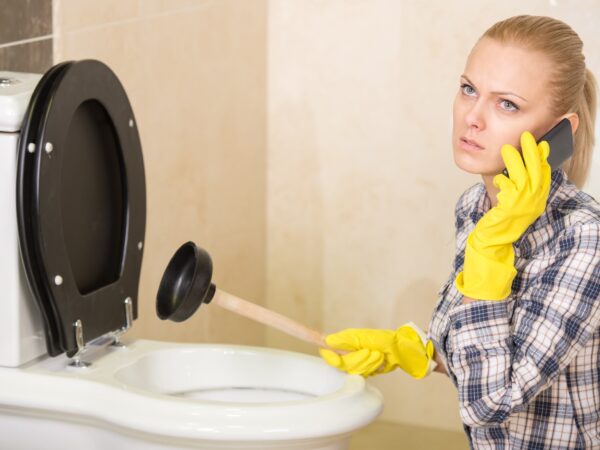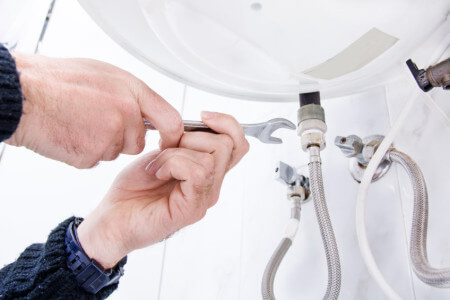How to Handle Emergency Plumbing Issues Before Professional Help Arrives
How to Handle Emergency Plumbing Issues Before Professional Help Arrives
Blog Article
Do you find yourself in search of insight about Expert Tips for Managing a Plumbing Emergency Until Help Arrives?

Plumbing emergencies can strike at any time, causing stress and possible damages to your home. Whether it's a ruptured pipeline, a stopped up drainpipe, or a leaking faucet, knowing how to manage the scenario till a specialist plumbing technician shows up can save you from further difficulties. This article gives necessary emergency plumbing pointers to assist you mitigate damages and gain back control during a pipes dilemma.
Turn Off the Water
The primary step in any type of plumbing emergency is to shut down the water system. For localized issues, such as a dripping faucet or toilet, switch off the valve near the component. In the case of a major leakage or burst pipe, find your home's main water shut-off shutoff and turn it off quickly. Recognizing the location of these valves beforehand can conserve important time during an emergency situation.
Turn off Your Water Heater
In particular emergencies, such as a ruptured pipeline, it's a good idea to turn off your water heater. This stops overheating or damages to the device when water stops moving. Turn off the power supply to the hot water heater (electric or gas) and allow it cool to prevent possible threats.
Briefly Stop a Ruptured Pipe
A ruptured pipe can cause significant water damages in minutes. To alleviate the issue:
Call an expert plumbing professional instantly to attend to the problem completely.
Have an Emergency Situation Plumbing Set
Prepare a basic plumbing emergency situation kit to manage small issues successfully. Your kit ought to consist of:
Having these tools handy can make a substantial difference in your capability to take care of emergencies.
Unclog Drains Securely.
A clogged up drain can be an aggravating and unpleasant concern. Here's exactly how to tackle it:.
If these approaches do not function, prevent utilizing extreme force, as it might get worse the clog.
Take Care Of Overflowing Toilets.
An overruning bathroom can trigger prompt chaos. Here's what you should do:.
Address Little Leaks with Temporary Solutions.
Little leakages can swiftly become substantial issues if left unchecked. Utilize these temporary solutions until specialist assistance shows up:.
While these repairs aren't permanent, they can aid lessen water loss and damage.
Take Care Of Frozen Pipeline Meticulously.
In chillier climates, icy pipes are an usual emergency. If you believe a frozen pipeline:.
Know When to Call an Expert.
While quick fixes can help momentarily, specific pipes problems call for instant specialist interest. Call a plumber if:.
Without delay getting in touch with a specialist guarantees the concern is dealt with properly and prevents additional difficulties.
Avoid More Damage.
Taking quick activity to minimize damage can conserve you time and money over time. Below's how:.
Conclusion.
Plumbing emergency situations can be frustrating, however with the appropriate expertise and devices, you can take care of the scenario properly until help arrives. By turning off the supply of water, dealing with little leaks, and using momentary solutions, you can decrease damage and keep your home safe. Remember, these suggestions are momentary options; constantly consult a qualified plumber to take care of the origin of the trouble. Prep work and fast thinking are your finest allies in any plumbing emergency.
8 Helpful Tips for Managing Plumbing Emergencies at Home
If your plumbing system hasn’t failed once, wait for it because almost everyone has a story to tell. Sometimes, it could be simple emergencies such as a leaking pipe, a blocked cistern, or even a big burst pipe. In situations like this, you need to have some handy tips to save you some money and from possible damages.
Take care of minor issues early.
Sometimes, you could have avoided an emergency by taking proactive measures while it was still early. Some major plumbing emergencies can be a result of an ignored minor issue. We recommend that you have items like plumbing tapes and other related items. A plumbing tape can allow you to manage minor leaks before the plumber arrives.
Cut off the water supply.
This tip is essential in almost any type of leakage problem. For problems like minor leakages in the toilet or kitchen, turn off the supply that takes water to the affected pipes. If the leakage is a major pipe, you must shut off the supply valve to the entire building. This will help you avoid flooding your home and neighbors if you share a flat.
Know your plumbing system
Folks typically move into a new apartment without understanding the water supply around the building. This can prove disastrous if a water emergency arises and the plumber is far away. The previous tip will prove useless if you don’t practice this one. More importantly, know where your water shut-off valve is located – you’ll need that knowledge to prevent potential home floods.
Have some common handy tools
There are lots of plumbing emergencies that you can handle without hiring a plumber. That’s why you must keep some tools available always. Some tools that you can use to fix simple plumbing emergencies easily include plumbing tapes, screwdrivers, thread seal tapes, plungers, pliers, tape measures, and rubber gloves.
Insulate your pipes from cold
You’ll save yourself from many plumbing expenses if you protect your water pipes from the cold. This is because of the harmful effects that cold weather can have on your pipes. During winter, your pipes can burst from being overly expected to freezing temperatures. So, make sure insulators are there to keep the pipes working correctly.
Avoid practices that will clog your toilet.
Many people indulge in practices that can damage the plumbing system of the entire building. One of these is when they use their toilet to dispose-off garbage. They flush all kinds of things, such as paper towels, bandages, hairs, female sanitary products, etc., down the toilet. This will block your toilet in the long run, incurring unnecessary expenditures. Dump such waste in the trash instead.
Check your dials regularly.
Sometimes, there could be leakages in your home without noticing them in time. So, constantly monitor your water meter dial. If the dial is reading when there is nobody using water, this is an indicator that there is leaking. Check for leaks immediately. Call a plumber as soon as possible if you can’t find any.
https://www.constructionplacements.com/8-helpful-tips-for-managing-plumbing-emergencies-at-home/

I'm very interested by What to Do During a Plumbing Emergency and I am assuming you enjoyed the new entry. Please set aside a second to share this blog entry if you enjoyed it. Bless you for being here. Please visit our website back soon.
Browse Our Site Report this page